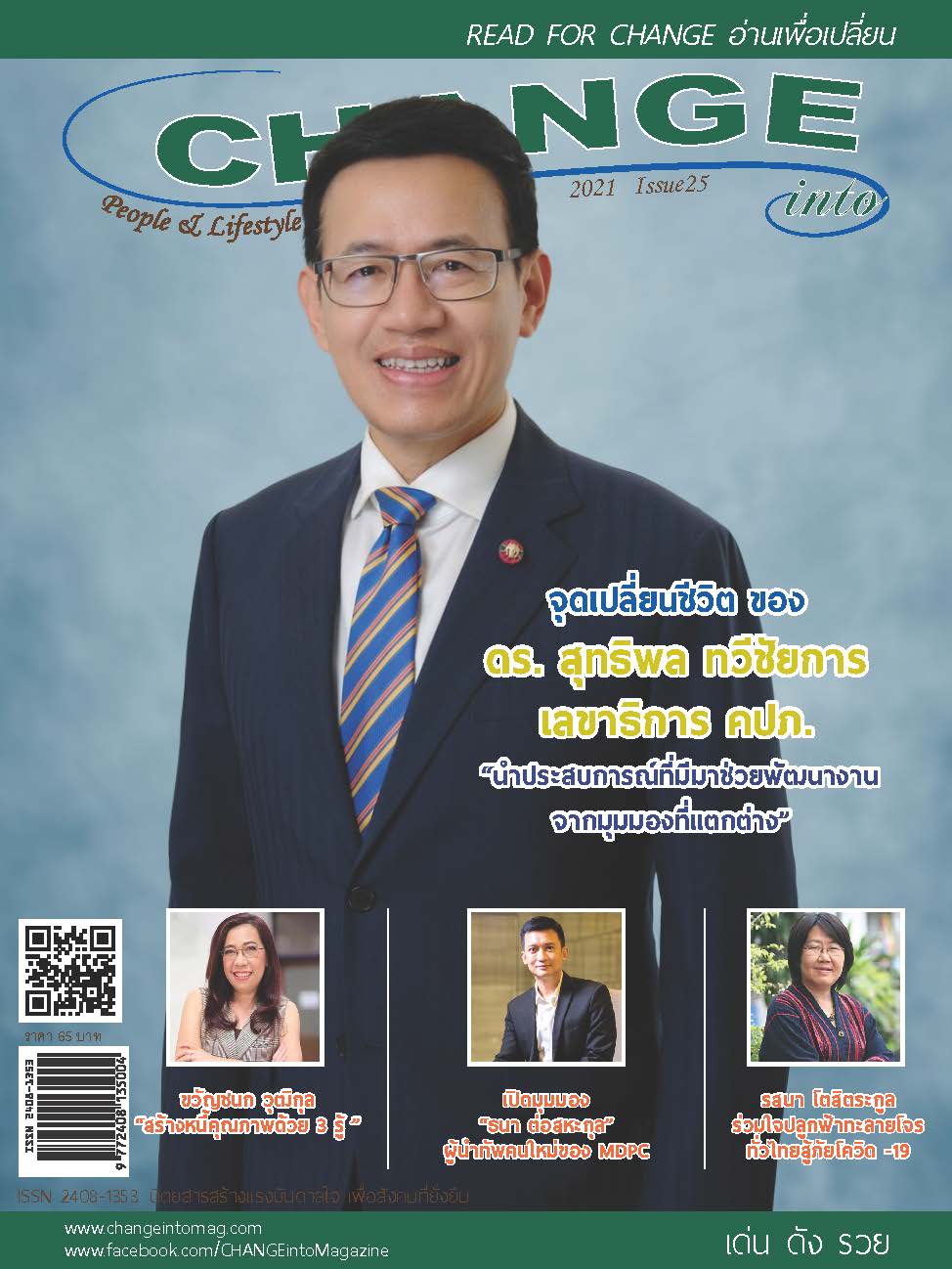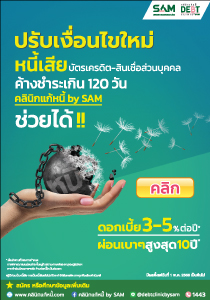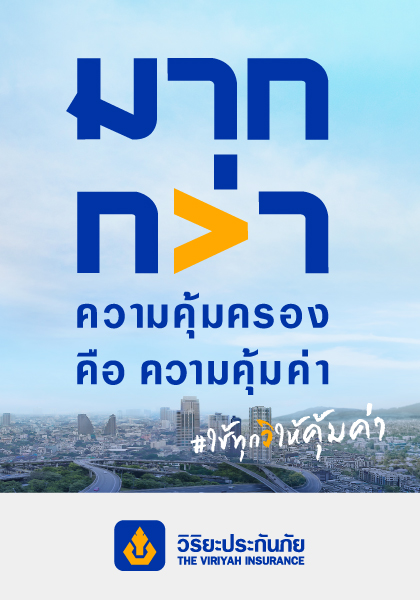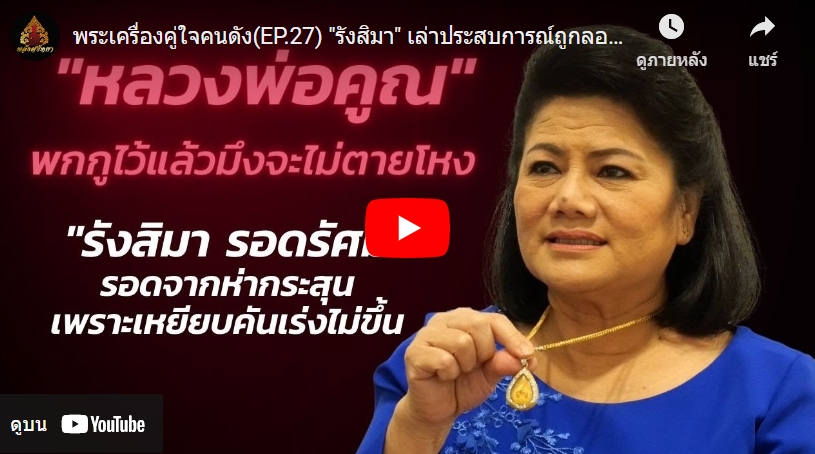กสิกรไทยไม่ทิ้งกัน เดินหน้าช่วยลูกค้าต่อหลังหมดมาตรการพักหนี้

กสิกรไทยไม่ทิ้งกัน เดินหน้าช่วยลูกค้าต่อหลังหมดมาตรการพักหนี้
กสิกรไทยเดินหน้าส่งมาตรการช่วยเหลือลูกค้าต่อเนื่อง หลังมาตรการพักชำระเงินต้นและดอกเบี้ยครบกำหนดในวันที่ 22 ต.ค.นี้ ชี้ลูกค้า 81% กลับมาชำระหนี้ได้ปกติ ส่วนลูกค้าที่ยังไม่สามารถกลับมาชำระหนี้ได้เนื่องจากยังขาดสภาพคล่อง ธนาคารเตรียมความช่วยเหลือเพื่อรองรับลูกค้ากลุ่มนี้ โดยเน้นแก้หนี้ให้ตรงจุดและเหมาะกับลูกค้าแต่ละราย ผ่านมาตรการหลายรูปแบบ เช่น ปรับลดภาระผ่อนชำระต่อเดือน พักชำระเงินต้น พักชำระเงินต้นและดอกเบี้ย ตลอดจนปล่อยสินเชื่อใหม่ เพื่อให้ธุรกิจสามารถดำเนินต่อไปได้
นายกฤษณ์ จิตต์แจ้ง กรรมการผู้จัดการ ธนาคารกสิกรไทย เปิดเผยว่า ผลกระทบทางเศรษฐกิจที่เกิดจากการแพร่ระบาดของโควิด-19 ทำให้ลูกค้าธุรกิจและลูกค้าบุคคลได้รับผลกระทบเป็นจำนวนมาก ซึ่งธนาคารได้ให้ความช่วยเหลือลูกค้าอย่างต่อเนื่องมาโดยตลอดตั้งแต่ช่วงเดือนเม.ย.ที่ผ่านมา ทั้งการช่วยลดภาระค่าใช้จ่าย เช่น ลดยอดการผ่อนต่อเดือน พักชำระเงินต้นและดอกเบี้ย และสนับสนุนเงินทุนด้วยสินเชื่อเพื่อเสริมสภาพคล่อง โดยให้ความช่วยเหลือลูกค้าธุรกิจและลูกค้าบุคคลผ่านมาตรการระยะที่ 1 และ 2 ไปแล้ว 860,000 ล้านบาท ในจำนวนนี้เป็นการพักชำระเงินต้นและดอกเบี้ยให้ลูกค้าธุรกิจที่เข้าร่วมมาตรการ 360,000 ล้านบาท ซึ่งจะครบกำหนดในวันที่ 22 ต.ค.นี้ ธนาคารได้มีการเตรียมความช่วยเหลือสำหรับลูกค้าที่เข้ามาตรการพักชำระหนี้เพื่อให้สามารถดำเนินธุรกิจได้อย่างต่อเนื่อง โดยมีการติดต่อสอบถามลูกค้าแต่ละรายอย่างใกล้ชิด เพื่อพิจารณาสภาพคล่องหรือกระแสเงินสดของลูกค้า ทั้งนี้จากการเข้าพบลูกค้าผู้ประกอบการที่เข้ามาตรการฯ ประมาณ 100,000 ราย พบว่าราว 81% สามารถกลับมาชำระหนี้ได้ปกติ ซึ่งเป็นธุรกิจที่อยู่ในกลุ่มอุตสาหกรรมอุปโภคบริโภคมีเพียง 18% ที่ต้องการมาตรการช่วยเหลือต่อ โดยส่วนใหญ่อยู่ในอุตสาหกรรมท่องเที่ยว และส่วนที่เหลือมีการปิดกิจการไปแล้ว
สำหรับลูกค้าที่ยังไม่สามารถกลับมาชำระปกติได้ ธนาคารได้ให้ความช่วยเหลือต่อเนื่อง โดยเน้นแก้หนี้ให้ตรงจุดแทนการช่วยเหลือเป็นการทั่วไป มาตรการช่วยเหลือของธนาคารจึงมีหลายรูปแบบ เพื่อให้เหมาะสมกับสภาวะอุตสาหกรรมและลักษณะธุรกิจของลูกค้าแต่ละราย โดยมีรูปแบบการช่วยเหลือ ดังนี้ 1) การบรรเทาภาระค่าใช้จ่าย เช่น การปรับลดภาระผ่อนชำระต่อเดือน การพักชำระเงินต้น การพักชำระเงินต้นและดอกเบี้ย และ 2) การให้เงินทุนเพื่อเสริมสภาพคล่อง เช่น การปล่อยสินเชื่อใหม่เพื่อช่วยเพิ่มสภาพคล่องให้กับกลุ่มลูกค้าธุรกิจผ่านโครงการค้ำประกันสินเชื่อ Soft Loan พลัส วงเงินสูงสุดไม่เกิน 100 ล้านบาทรวมทุกสถาบันการเงิน ค้ำประกันสินเชื่อโดยบรรษัทประกันสินเชื่ออุตสาหกรรมขนาดย่อม (บสย.) ระยะเวลากู้สูงสุด 7 ปี และพักชำระเงินต้นสูงสุด 2 ปี
นายกฤษณ์ กล่าวทิ้งท้ายว่า แม้ธนาคารจะมีมาตรการให้ความช่วยเหลือ ซึ่งเป็นการลดภาระหนี้ในปัจจุบัน แต่ภาระดอกเบี้ยในแต่ละเดือนตลอดช่วงการพักหนี้ ยังคงเป็นภาระแก่ลูกหนี้ในระยะยาว ดังนั้นลูกหนี้ที่ยังมีรายได้เพียงพอที่จะชำระคืนหนี้ควรชำระหนี้ตามปกติหลังหมดมาตรการ นอกจากนี้ การปรับตัวในการดำเนินธุรกิจของผู้ประกอบการทั้งในด้านการหาตลาดใหม่ ๆ และการบริหารต้นทุน ยังคงเป็นเรื่องสำคัญมาก
KBank continues to help customers after end of debt holiday program
KASIKORNBANK (KBank) will continue to provide assistance to its customers after the debt holiday program comes to an end on October 22. It notes that 81 percent of debtors could resume their debt repayment as usual, while the rest may still be unable to make their debt repayment due to liquidity constraints. Therefore, KBank is preparing to aid these cash-strapped clients based on their needs via multiple measures including reduction of monthly debt repayment, suspension of principal payment only, suspension of both principal and interest payment, as well as extension of new loans to ensure their business continuity.
Mr. Krit Jitjang, KBank President, said that a large number of the Bank’s business and retail customers have been facing financial stress caused by the COVID-19 pandemic. Since April, KBank has provided assistance to its customers to ease their debt burdens, including reduction of monthly debt repayment, suspension of principal and interest payment, and the offering of financial assistance for liquidity enhancement. Up to now, our business and retail customers have been granted a combined 860,000 million Baht through Phases 1 and 2 of assistance measures. Of that amount, 360,000 million Baht was offered via the debt holiday program, which is set to expire on October 22. KBank has put in place assistance measures for customers participating in the debt moratorium program so that they can keep running their businesses. We have closely enquired with each of our customers regarding their liquidity or cash flow. Having met approximately 100,000 customers, we have found that around 81 percent of them, largely those in the consumer products industry, can now resume debt repayments as usual. However, another 18 percent of them, primarily in the tourism industry, are still in need of assistance – while the remaining customers have closed their businesses.
KBank continues to help customers who cannot resume debt repayment, with an emphasis on tackling their specific problems rather than offering general assistance. KBank’s assistance measures, therefore, are varied in alignment with industrial conditions and the nature of our customers’ businesses. They include: 1) Monthly installment payment reduction, and suspension of principal and interest payments to help reduce customers’ expenditures; and, 2) Provision of funding to boost customers’ liquidity, such as extending new loans, with a maximum limit of 100 million Baht from financial institutions participating in the Soft Loan Plus program under the Portfolio Guarantee Scheme to their corporate customers; the loan is guaranteed by the Thai Credit Guarantee Corporation (TCG), with loan term of up to seven years, and suspension of principal payment for a maximum period of two years.
Mr. Krit said in closing that, while KBank has issued assistance measures which serve to relieve debt burdens at present, the interest incurred each month throughout the debt suspension period will continue to weigh upon debtors in the long run. Therefore, those who possess sufficient income to pay off their debts should manage to do so once measures have run their course. Furthermore, business operators’ adjustments to find new markets and control costs will remain essential.




















